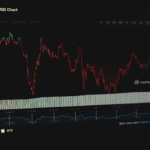
Real estate has long been considered a safe haven for investors seeking stability, long-term returns, and tangible assets. However, in recent years, the rise of blockchain technology and tokenization has introduced an innovative way to access and trade real estate.
Tokenization allows fractional ownership of properties, transforming how individuals and institutions engage with this traditionally illiquid asset class. But is it really the next big asset class, or just a passing trend?
| What is Tokenization?
Tokenization involves converting ownership of a property into digital tokens, which can then be traded, bought, or sold on blockchain platforms. These tokens represent shares of the property, offering investors the opportunity to own a fraction of a high-value real estate asset, such as commercial buildings, residential complexes, or even land. This model breaks down the barriers of traditional real estate investing by providing liquidity, accessibility, and transparency—traits that were previously lacking in the market. |
Expanding Accessibility: A New Era of Investment Opportunities
Traditionally, real estate investment has been reserved for high-net-worth individuals and institutional investors. The high upfront costs and illiquid nature of the market made it difficult for everyday investors to participate. Tokenization opens the door to a much broader pool of investors, allowing anyone with an internet connection and a small amount of capital to invest in premium properties.
Platforms that facilitate tokenization offer a range of properties to invest in, from commercial real estate to residential developments, which were once out of reach for many. By enabling fractional ownership, tokenization enables smaller investments, which democratizes access to real estate markets.
For example, a single property valued at $1 million could be divided into thousands of tokens, each representing a small fraction of the property’s ownership. This level of fractionalization significantly lowers the entry barrier, offering investors a diversified portfolio across various property types and locations.
Why Tokenisation Is Gaining Momentum
Several key factors are accelerating the adoption of tokenized real estate:
- Liquidity: Traditional property investments often involve long holding periods and complex exit strategies. Tokenization makes it easier to enter and exit positions, sometimes even on secondary markets.
- Global Accessibility: Blockchain platforms enable cross-border investment, giving people access to international markets without being limited by geographical or financial constraints.
- Lower Costs: Smart contracts can automate processes like compliance checks, dividend distribution, and transaction settlements—reducing reliance on intermediaries and administrative fees.
- Transparency and Security: All transactions are recorded on a blockchain ledger, increasing investor confidence through immutable and auditable data.
Major platforms such as RealT, SolidBlock, and tZERO are already offering tokenized real estate opportunities, and new players continue to emerge as regulatory clarity improves in key markets.
Curious About Tokenizing Real Estate To Fit Into Your Investment Journey?
Kenson Investments provides access to emerging blockchain trends and educational resources tailored for today’s digital asset landscape. From tokenized assets to smart contract infrastructure, our digital asset management consultants are here to help you navigate new market possibilities—always with clarity, transparency, and risk awareness.
Join now to explore the future of digital ownership.














